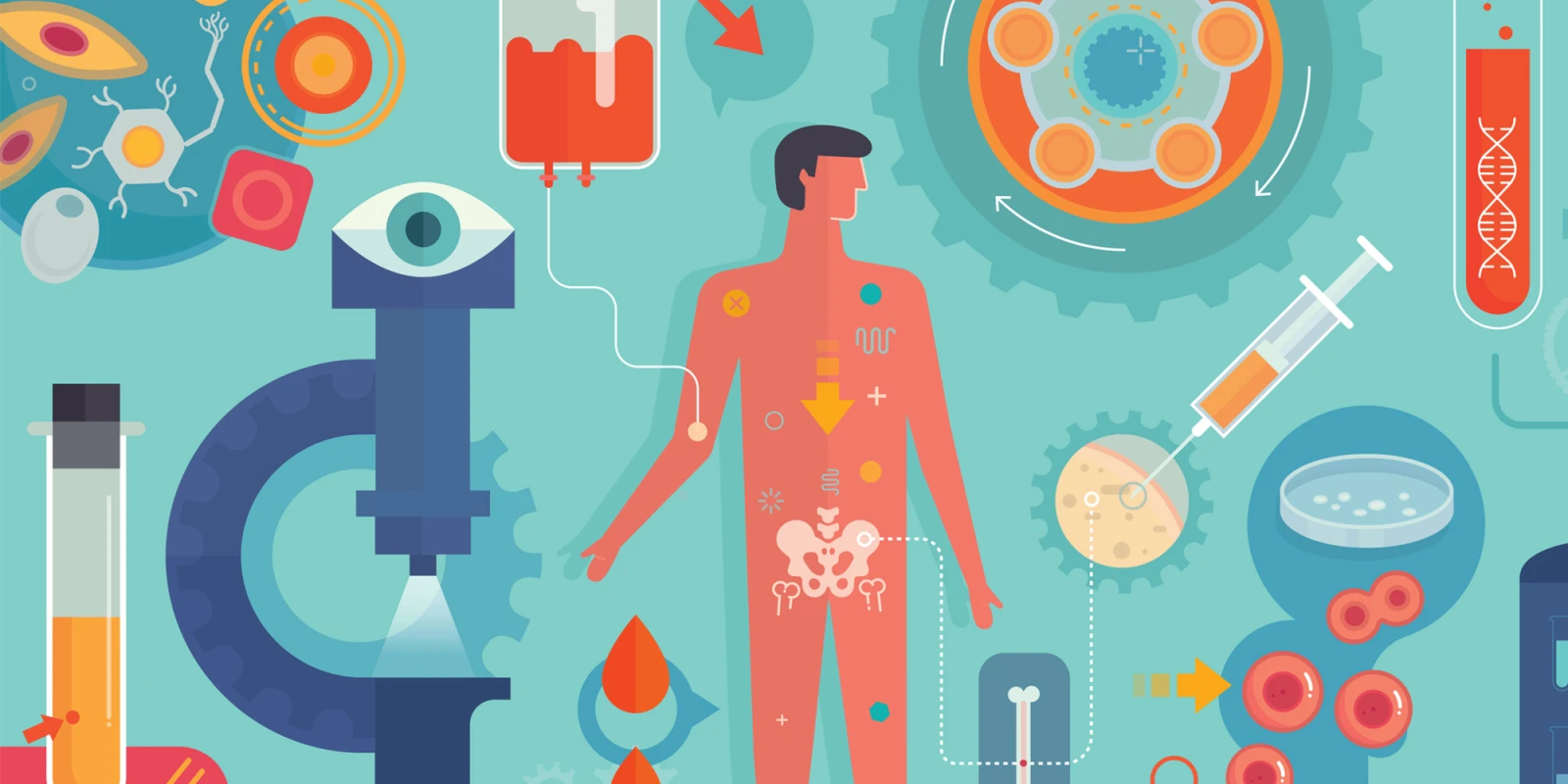
Physician walks into the room, "Sir, we got back your test results and we saw multiple pleomorphic neoplastic cells. They were positive. It appears you have thyroid cancer. Our intern will be in soon to answer any questions." Physician abruptly walks out of the room. The patient looks around. Empty. Alone. Four walls with no explanation. Emotionless. What does it all mean?
Intuitively this doesn't sound accurate. No physician is that heartless; that void of empathy and sympathy. And yet these are the stories I hear time and time again on blogs and in narrative medicine pieces. We have spent years preaching that empathy and bedside manner should be taught in medical school and in residency. Personally, I think it is. Yes, there are physicians who practice this way, but with today's graduates, I think we are doing a fairly good job. Yes, we can do better, but that isn't what I think medicine really needs.
Medicine needs a healthier relationship with evidence-based medicine and we, as a profession, need to foster future physician-scientists through every means possible.
I sit in a unique place in my training. I am an osteopathic medical student, currently enrolled at an allopathic school across the country completing a PhD. Where most research-based dual degree students are enrolled in traditional MSTP MD/PhD programs, I am straddling two schools trying to follow a career path in which I personally feel I can provide the most value in. But with these arrangements, there are limitations, setbacks, and hurtles. My medical education isn't paid for like most dual degree students. As a whole, individuals in the profession are enthusiastic about my path, but the profession and the institutions within the profession are not as supportive. It hasn't been easy, and around every corner I feel ostracized. I have been told no. I have been questioned. I have been told, "You are young, you will change your mind." But I won't; and I am not alone. Countless of dual degree students feel this same pressure.
From 2008 to 2018, the number of matriculating MD/PhD students increased by 16% where the number of matriculating MD students increased by 22%. While the difference is not alarming, the number of MD/PhDs who are currently involved in research or who currently have funding is. Physicians in medical research have been decreasing since 2000 for every age group except physicians over the age of 61. Brass et al. found that only 39% of MD/PhDs devote at least 75% of their time to research and only 61% of MD/PhDs have identifiable research funding. From 2000 to 2012, first-time NIH research project grant applicants increased by roughly 80%. Of that 80%, 96% of the increase in first-time grant applicants came from strict PhDs. The number of first-time NIH research grant applications for MDs and MD/PhDs did not increase between 2000 to 2012.
While one argument has always been that core basic science research should be left to PhDs; our understanding of human disease has become more complex. Organ-specific claims have systemic implications. New fields are shaping our understanding of health and disease. In particular, the gut microbiome has been implicated in influencing everything from autoimmunity, to obesity, to heart disease, to anxiety and depression. My research is in this field. Underlying every article I read, from Cell to Science, there are fundamental questions left unanswered and discussion sections that overstep reasonable inference. While the field has been overrun by microbiologists and synthetic biologists, there are very few gastroenterologists, let alone MD/PhD gastroenterologists, that are joining the conversation. While gastroenterology-based journals are filled with articles on hepatocellular carcinoma, colon cancer, inflammatory bowel disease, and Barrett's esophagus, little is published about the gut microbiome. While last year 3851 papers were published on the "gut microbiome" according to PubMed, of the first 50, only 4 came from gastroenterology-based journals. All four of those articles, however, were systematic reviews, meaning that while the gut microbiome is implicated in multiple disease processes in the gut, the core research is rarely being conducted by gastroenterologists or published in journals focused on educating the field.
So herein lies what I believe medicine, as a profession, needs: a healthier relationship with scientific research. Research is difficult and it certainly isn't for everyone, but the fact of the matter is, to be involved in groundbreaking research as a physician-scientist, you often have to jump over hurdles and do so at the expense of your medical training and at the expense of income for a hospital system. For those genuinely interested in research, the profession should foster or lift those individuals up so they can translate research into an advanced understanding of treating disease. For those who may want to do some research, if it didn't come at the cost of procedural reimbursement, we as a profession should seek to incentivize research beyond the standard clinical case publication and report. For those who understand that the value proposition of a physician working in a clinical setting far out ways the value of a physician researching, we as a profession and those in an academic setting, should find ways to encourage and aid in grant application submissions, to account for monetary loss from a researching physician.
The profession is far from perfect. One thing that I personally feel the profession needs is a healthier relationship with scientific research. Medicine should encourage and foster a better environment for those who wish to straddle the line between clinical medicine and basic and clinical scientific research.
Frank Cusimano is a third-year medical student and third-year PhD candidate at AZCOM and Columbia University, respectively. He is the host of the Surviving Medicine Podcast and you can connect with him at his Blog, on Instagram, or on Twitter. Feel free to join the SurvivingMedicine Community of medical students and physicians. He is a 2018–19 Doximity Author.
References:
- "Physician-Scientists with a Medical Degree in the NIH-Funded Workforce". Chapter 3: ACD Physician-Scientist Workforce Report 2014. NIH Research Portfolio Online Reporting Tools. Last updated June 30, 2018.
- Brass, Lawrence et al. "Are MD-PhD Programs Meeting Their Goals? An Analysis of Career Choices Made by Graduates of 24 MD-PhD Programs." Academic Medicine. 2010 Apr; 85(4): 692-701.
- Kwan, Jennifer et al. "Exploring intentions of physician-scientist trainees: factors influencing MD and MD/PhD interest in research careers." BMC Medical Education. 2017; 17: 115.
- Association of American Medical Colleges. Data. Facts. Table B-11-1; Table B-11-2; Table 4. AAMC 11/21/2017.







